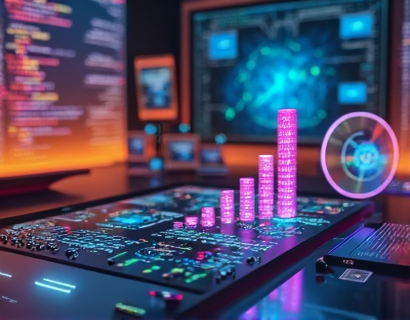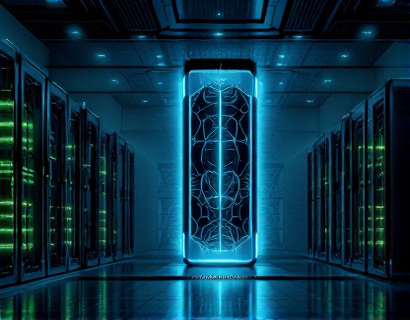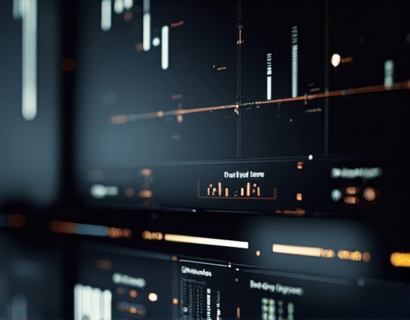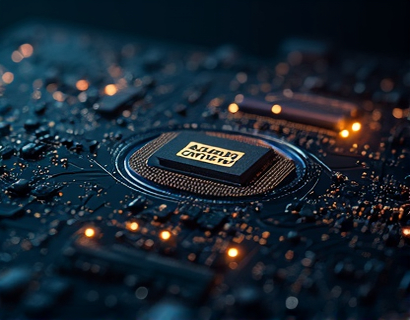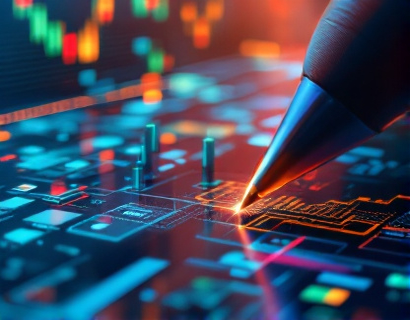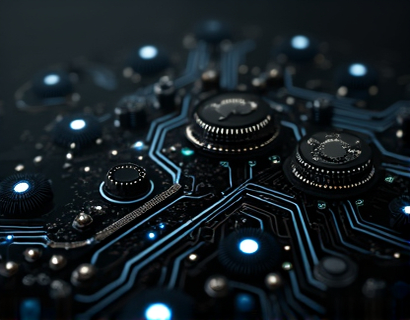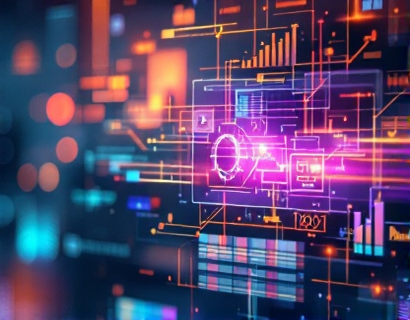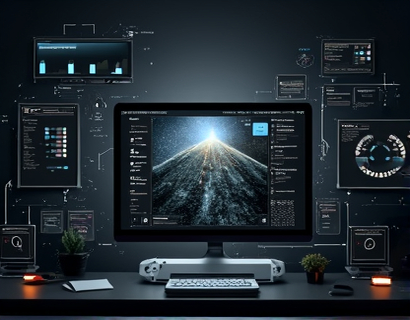Decentralized Innovation: Synergizing AI and Crypto for Next-Gen Digital Transformation
The intersection of cryptocurrency and artificial intelligence (AI) is giving rise to a new era of digital transformation, one that promises to redefine how we interact with technology and each other. This synergy, often referred to as decentralized innovation, is not just a technological advancement but a paradigm shift that is reshaping the digital landscape. At the core of this transformation are decentralized applications (dApps) and intelligent systems that leverage the unique properties of blockchain technology and AI to create more secure, transparent, and user-centric digital solutions.
The concept of decentralized innovation is built on the foundation of blockchain, a distributed ledger technology that ensures data integrity and security through decentralization. Unlike traditional centralized systems, blockchain operates on a network of nodes, each maintaining a copy of the ledger. This decentralization eliminates single points of failure and reduces the risk of data tampering, making it an ideal platform for building trust in digital transactions. When combined with AI, which excels in processing and analyzing vast amounts of data to generate insights and make predictions, the potential for innovation becomes immense.
One of the key areas where AI and cryptocurrency intersect is in the development of smart contracts. Smart contracts are self-executing contracts with the terms of the agreement directly written into code. They run on blockchain networks and automatically enforce and execute the terms of the contract when predefined conditions are met. AI can enhance smart contracts by providing predictive analytics and machine learning capabilities, allowing for more dynamic and adaptive contract terms. For instance, AI can analyze market trends and adjust the terms of a smart contract in real-time to optimize outcomes for all parties involved.
Another significant application of AI in the decentralized space is in the realm of decentralized finance (DeFi). DeFi platforms aim to recreate traditional financial services on blockchain networks, offering lending, borrowing, trading, and other financial activities without intermediaries. AI plays a crucial role in enhancing the efficiency and security of DeFi protocols. For example, AI-driven risk assessment models can evaluate the creditworthiness of users in decentralized lending platforms, reducing the risk of default and fraud. Additionally, AI can be used to detect and prevent malicious activities such as smart contract exploits and phishing attacks, thereby enhancing the overall security of DeFi ecosystems.
The integration of AI and cryptocurrency also extends to the realm of data privacy and user empowerment. Blockchain's inherent transparency can be a double-edged sword, as it exposes all transactions to public scrutiny. AI can help mitigate this by implementing advanced encryption techniques and zero-knowledge proofs, allowing users to prove the validity of a statement without revealing the underlying data. This ensures that users maintain control over their personal information while still benefiting from the transparency and security of blockchain technology.
Moreover, the synergy between AI and cryptocurrency is driving the development of decentralized identity solutions. Traditional identity management systems are centralized and vulnerable to breaches, leading to identity theft and other security issues. Decentralized identity platforms use blockchain to create self-sovereign identities, where users have full control over their personal data. AI can enhance these platforms by providing robust authentication mechanisms, such as biometric verification and behavioral analysis, to ensure that only authorized users access their identities. This not only enhances security but also improves the user experience by streamlining the authentication process.
The impact of AI and cryptocurrency on digital transformation is not limited to financial services and identity management. In the realm of supply chain management, AI and blockchain can work together to create transparent and efficient systems. AI can optimize logistics by predicting demand, managing inventory, and routing shipments for maximum efficiency. Blockchain ensures that every step of the supply chain is recorded and verifiable, reducing fraud and increasing trust among stakeholders. This combination can lead to significant cost savings and improved customer satisfaction.
In the healthcare sector, the integration of AI and cryptocurrency can revolutionize patient data management and drug development. AI can analyze vast amounts of medical data to identify patterns and predict disease outcomes, aiding in personalized medicine and early diagnosis. Blockchain can secure and decentralize patient data, ensuring privacy and compliance with regulations such as GDPR. Cryptocurrency can facilitate secure and transparent transactions for medical research funding and drug distribution, reducing corruption and ensuring that resources reach those who need them most.
The educational sector is another area where AI and cryptocurrency can drive transformative change. AI-powered educational platforms can provide personalized learning experiences, adapting to the needs and pace of each student. Blockchain can ensure the integrity and portability of educational credentials, allowing students to prove their qualifications to employers and institutions worldwide. Cryptocurrency can be used to create decentralized funding models for educational projects, enabling community-driven support and reducing reliance on traditional funding sources.
In the creative industries, AI and cryptocurrency are opening new avenues for artists and creators. AI can assist in content creation, from generating music and art to writing scripts and designing graphics. Blockchain-based platforms can ensure that creators receive fair compensation for their work, with smart contracts automatically distributing royalties to the rightful owners. This not only empowers creators but also fosters a more equitable and sustainable creative ecosystem.
The environmental impact of AI and cryptocurrency cannot be overlooked. While blockchain technology is energy-intensive, especially with proof-of-work consensus mechanisms, the integration of AI can help optimize energy usage and reduce the carbon footprint. AI can predict and manage energy consumption in blockchain networks, switching to more efficient consensus mechanisms like proof-of-stake when possible. Additionally, AI can monitor and mitigate the environmental impact of cryptocurrency mining operations, promoting sustainable practices in the industry.
As the ecosystem of decentralized applications and AI-driven services continues to grow, the role of developers and innovators becomes increasingly crucial. Building on the foundational technologies of blockchain and AI, new frameworks and tools are emerging to simplify the development of dApps and intelligent contracts. Platforms like Ethereum, Solana, and Polkadot provide robust ecosystems for developers to build and deploy decentralized solutions. AI libraries and frameworks such as TensorFlow and PyTorch are making it easier to integrate AI into blockchain applications, lowering the barrier to entry for developers.
The future of decentralized innovation is bright, with numerous opportunities for collaboration and growth. As more organizations and individuals recognize the potential of AI and cryptocurrency, we can expect to see a surge in innovative projects and applications. The key to success in this evolving landscape lies in fostering a community-driven approach, where developers, researchers, and users work together to push the boundaries of what is possible. By embracing decentralized innovation, we can create a more secure, transparent, and user-centric digital world.






